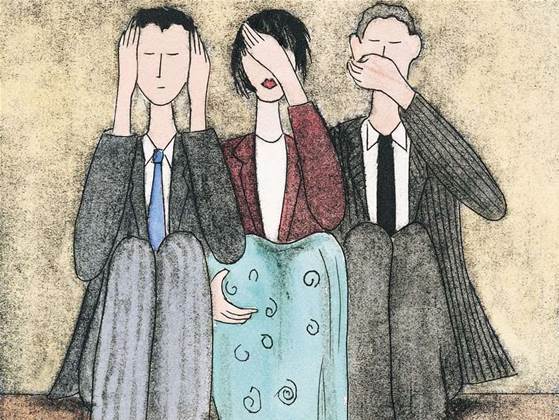
Department blog today, Conroy finally responded to some of the technical and alleged freedom of speech issues raised by the Federal government’s plan.
For the first time, the Minister revealed details of the types of content filters to be included in live ISP trials, with peer-to-peer traffic monitoring now on the government’s radar.
“Technology that filters peer-to-peer and BitTorrent traffic does exist and it is anticipated that the effectiveness of this will be tested in the live pilot trial,” said Conroy.
The admission is a new development for the proposal, which previously centred around monitoring standard HTTP and HTTPS traffic. Opponents had criticised the plan alleging that offensive content is often delivered via protocols and applications other than standard web sites - for example, via virtual private networks, email, newsgroups or instant messenger.
Conroy said the government ‘understands that the potential extent of ISP filtering is inherently related to the technical capabilities of filtering solutions’.
“International experience suggests that index-based filtering of a central blacklist is technically feasible,” said Conroy.
“Broader, dynamic analysis filtering of internet content, on the other hand, has raised some issues in the past.
“The government is currently testing the effectiveness of these technical solutions in the current live trial. The results of this trial will inform the government's approach to this issue,” said Conroy.
However, the Minister has resisted calls to reveal the contents of the proposed blacklist, claiming it is not in the public’s best interests.
“The ACMA blacklist is currently protected from release under the Freedom of Information Act,” said Conroy.
“Publishing the title or internet address of child abuse material would constitute distribution of illegal material and is therefore protected from release.
“To do otherwise would allow a person to view and download the material in jurisdictions where ISP-level filtering was not implemented.
“Given that most of this material relates to child sexual abuse, the publication of this information is clearly not in the public interest,” said Conroy.
Conroy denied that the content filtering plan would impinge on Internet users’ rights to freedom of speech.
“Freedom of speech is fundamentally important in a democratic society and there was never any suggestion that the Australian Government would seek to block political content. In this context, claims that the Government's policy is analogous to the approach taken by countries such as Iran, China and Saudi Arabia are not justified,” he said.
“All the government is now seeking to do is to examine how technology can assist in filtering internationally-hosted content.”
He also ruled out re-introducing PC-level filtering - the approach adopted by the previous government.
“Despite an $84.8 million government program and $15.5 million in advertising, only about two per cent of households with dependent children are using a [PC] filter,” said Conroy.
“Unfortunately, many parents do not have the technical skills or knowledge to install and manage PC-level filters. ISP-level filtering could provide important protection for those families with limited technical expertise.”
He continued: “We understand that ISP filtering is not a 'silver bullet' for this purpose. However, in conjunction with the Government's numerous other initiatives in this area, we believe it can make an important contribution to protecting children online.”


.png&h=140&w=231&c=1&s=0)
_(28).jpg&h=140&w=231&c=1&s=0)
_(22).jpg&h=140&w=231&c=1&s=0)




_(26).jpg&w=100&c=1&s=0)

 iTnews Executive Retreat - Security Leaders Edition
iTnews Executive Retreat - Security Leaders Edition












_(1).jpg&h=140&w=231&c=1&s=0)



